0330 133 3327
0330 133 3327
Heavy duty castors can help support even the heaviest of loads. Yet, worn or damaged castors present a serious workplace hazard, and can cause costly physical damage to floors and warehouse racking. Luckily, replacements are relatively simple and inexpensive. Heavy duty castors from Bluetrolley.com are manufactured in the UK and built to last. Simply check the table in the product description to identify the size and model number you require.
Browse our selection of heavy duty castors today.
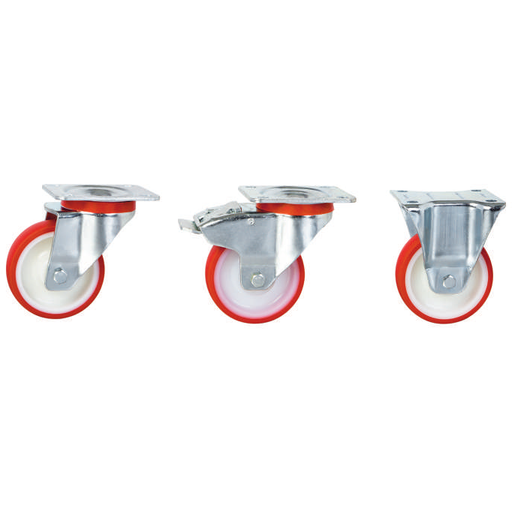 Sale
Sale
These heavy duty polyurethane wheels are supplied with a heavy duty pressed steel bracket, zinc plated. You can choose from a swivel, braked or f...
View full details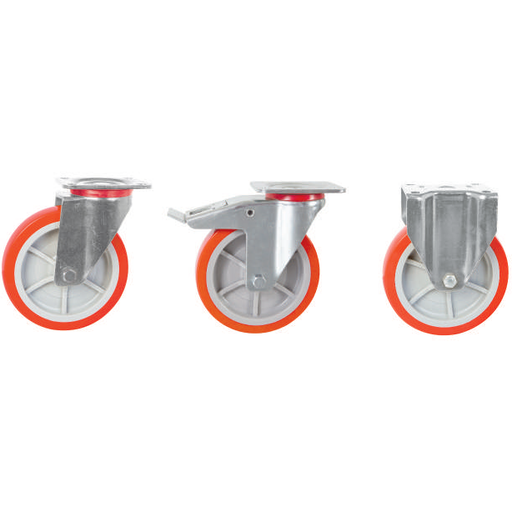 Sale
Sale
These heavy duty polyurethane wheels are supplied with a heavy duty pressed steel bracket, zinc plated. You can choose from a swivel, braked or fi...
View full details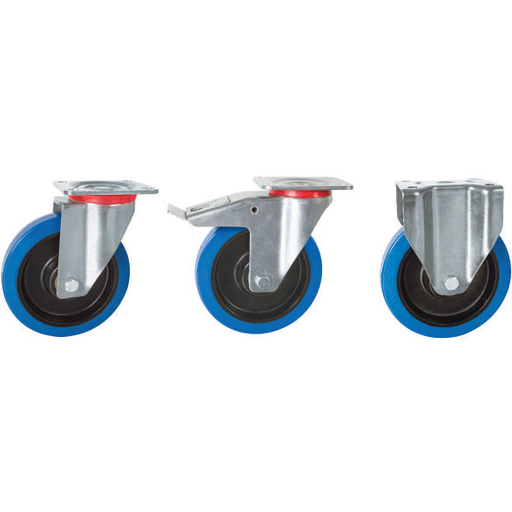 Sale
Sale
These heavy duty elastic blue rubber wheels are supplied with a heavy duty pressed steel bracket, zinc plated. The wheel is a blue elastic rubber ...
View full details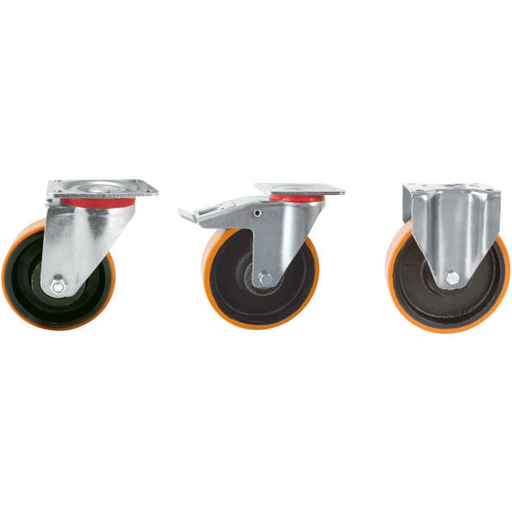 Sale
Sale
These polyurethane wheels are fitted with a heavy duty pressed steel bracket. The wheels have a polyurethane tyre and a black cast iron centre. Ea...
View full details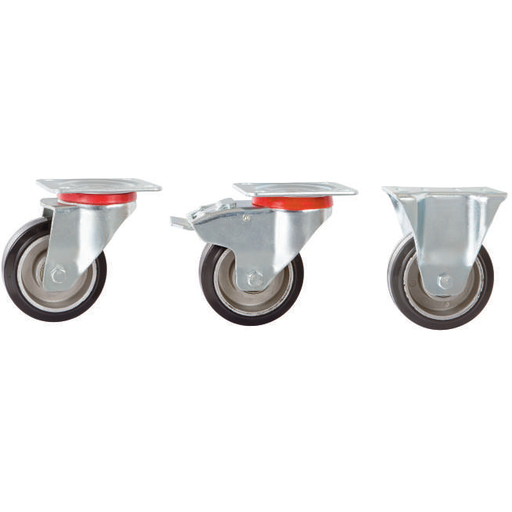 Sale
Sale
These heavy duty castors are fitted with a heavy duty pressed steel bracket, zinc plated. The wheels are black elastic rubber tyre with an alumini...
View full details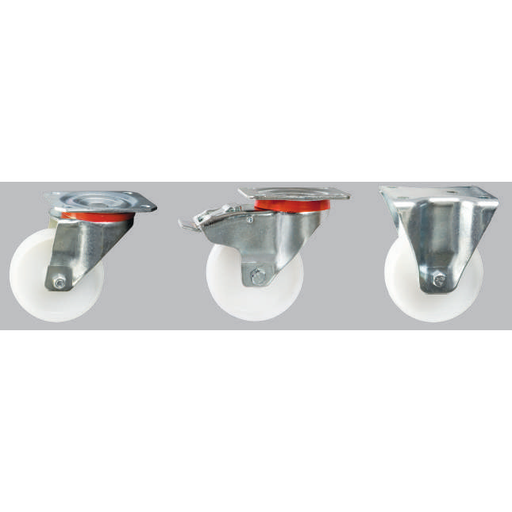 Sale
Sale
These nylon castors are fitted with a heavy duty pressed steel bracket with zinc plated finish. Each castor has a white nylon wheel with a choice ...
View full details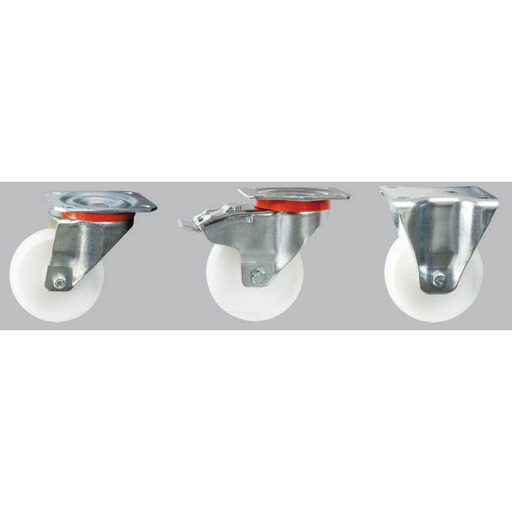 Sale
Sale
These nylon castors are fitted with a heavy duty pressed steel bracket with zinc plated finish. Each castor has a white nylon wheel with a choice ...
View full details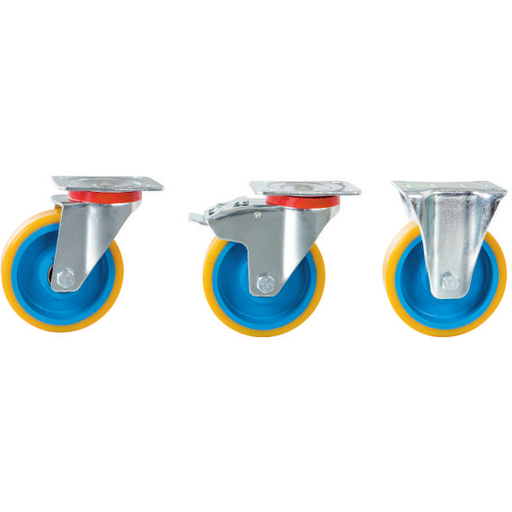 Sale
Sale
These polyurethane wheels are fitted with a heavy duty pressed steel bracket. The wheels have a polyurethane tyre and a blue cast iron centre. Eac...
View full details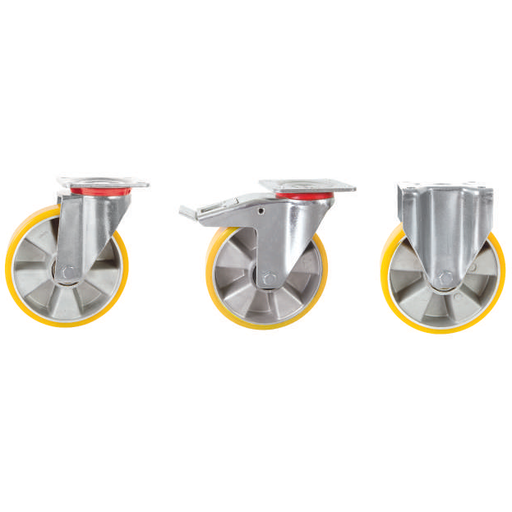 Sale
Sale
These polyurethane wheels are fitted with a heavy duty pressed steel bracket. The wheels have a polyurethane tyre and an aluminium centre. You can...
View full details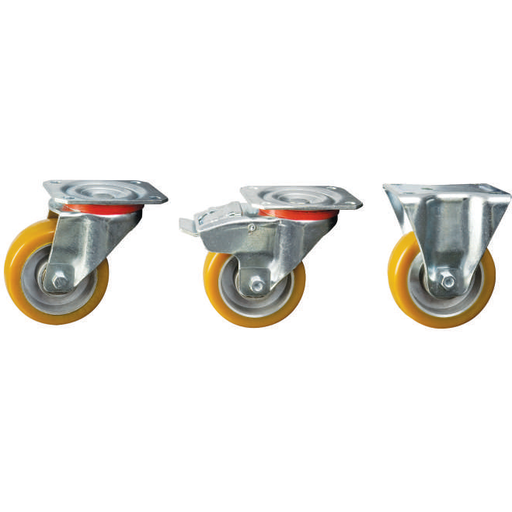 Sale
Sale
These polyurethane wheels are fitted with a heavy duty pressed steel bracket. The wheels have a polyurethane tyre and an aluminium centre. You can...
View full details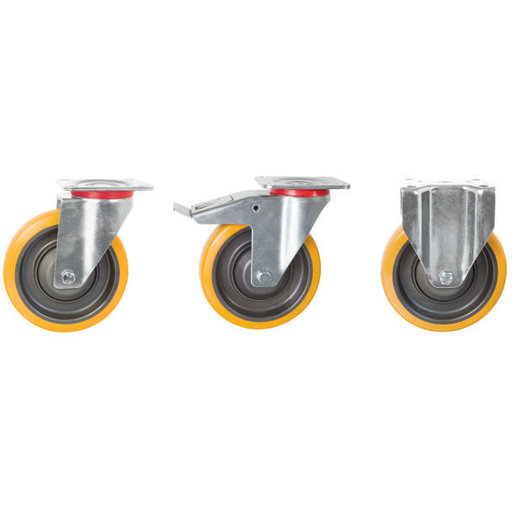 Sale
Sale
These heavy duty polyurethane wheels are supplied with a heavy duty pressed steel bracket, zinc plated. They have a brown polyurethane tyre and a ...
View full details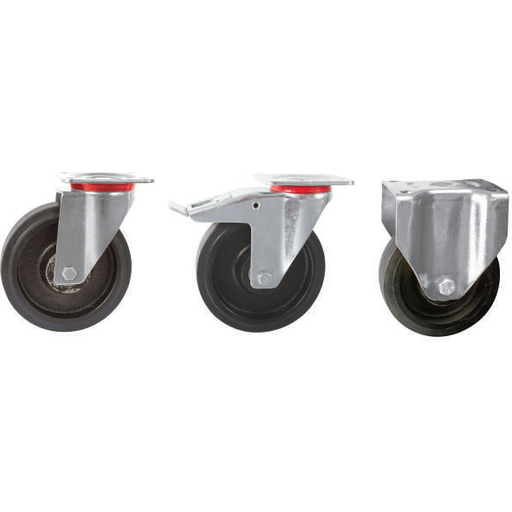 Sale
Sale
These heavy duty castors are fitted with a heavy duty pressed steel bracket, zinc plated. The wheels are black elastic rubber tyre with an alumini...
View full details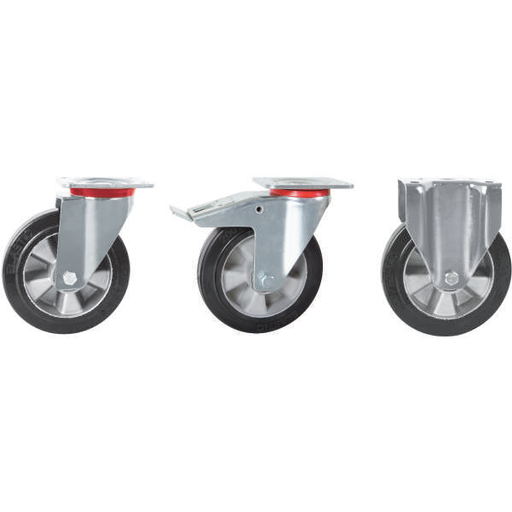 Sale
Sale
These heavy duty castors are fitted with a heavy duty pressed steel bracket, zinc plated. The wheels are black elastic rubber tyre with an alumini...
View full details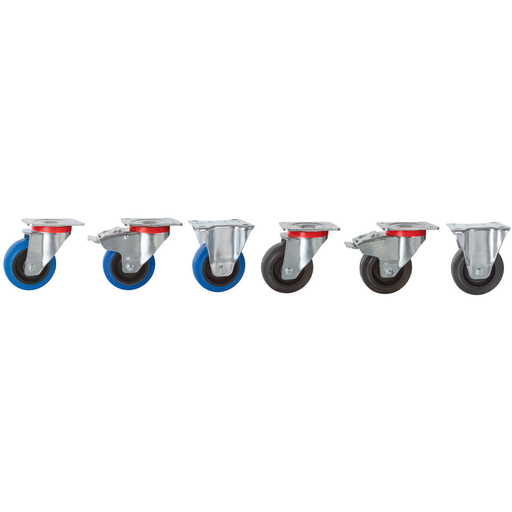 Sale
Sale
Blue Wheel Black Wheel These heavy duty elastic rubber wheels are supplied with a heavy duty pressed steel bracket, zinc plated. You can choose f...
View full details
There are broadly three castor types for heavy-duty use:
If you have flooring that might be damaged by bare metal castors, we have an alternative selection to soften the impact. Your tyre choices include:
Check out our range of Wheels & Castors
For any substantial use, you’ll need to pay attention to both the weight of the trolley and the anticipated maximum weight of the load it will carry. Our stock of replacements take you right up to the 1000kg maximum load capacity.
Generally, a larger wheel size manufactured in metals like cast iron and steel will be needed to distribute the weight evenly. Weight-bearing options often come without tyres, which is fine for outside use and for hard concrete floors resistant to damage. The type of bearing also has an impact on load capacity. Those with stronger roller bearings are normally used for heavy-duty purposes.
If you discover that your castor assembly is buckled out of shape or dented, replacing the full assembly complete with new wheels is most likely your best option. You will need to check your existing ones so that you can replace them with a similarly functioning set.
If your assembly seems to be in good condition but you are still getting problems, it is most likely the wheel bearings. A simple replacement could do the trick.
A close inspection of your existing equipment might reveal that the load capacity and wheel size is stamped on the side to make finding an exact replacement much easier.
Materials and stock moving equipment specialists
We are industry specialists and have been manufacturing our range of industrial trucks, trolleys and cages since 1995. We only source top-quality materials and accessories from within the UK. By choosing us, you are trusting in the expertise of our buyers to find the finest products at great prices.
Unrivalled customer service
Approachable, flexible, and with our customers front and centre, we make it our top priority to provide an excellent experience to everyone we engage with. With a huge range of off-the-shelf products and spares, we aim to deliver your order rapidly and free of charge on orders totalling over £100. If in the unlikely event you have an issue, our fair returns policy means we can put things right without delay.
Heavy duty castor wheels are one of many different types of manual handling solutions we stock at BlueTrolley.
Want to know more about our products?
Speak to our friendly team today.
Why do castor wheels wobble?
Castor wheels wobble or ‘flutter’ for many reasons, including being used at too high a speed or being misaligned with the ground. It can be avoided by proper alignment and maintenance of the castors, such as greasing them to allow for a smooth roll.
What’s the difference between a wheel and a castor?
Wheels and castors are not the same thing. Wheels spin on a single axis, so they can only roll in one direction at a time. Castors include wheels in their design, as well as the mounting system, which allows it to move in other directions.
What are castor wheels made of?
There are a number of common materials used in the production of heavy duty castor wheels - including rubber, steel, nylon, and more. The type of material used will often depend on the job the castor is needed for, as well as the type of surfaces they are to be used on.
